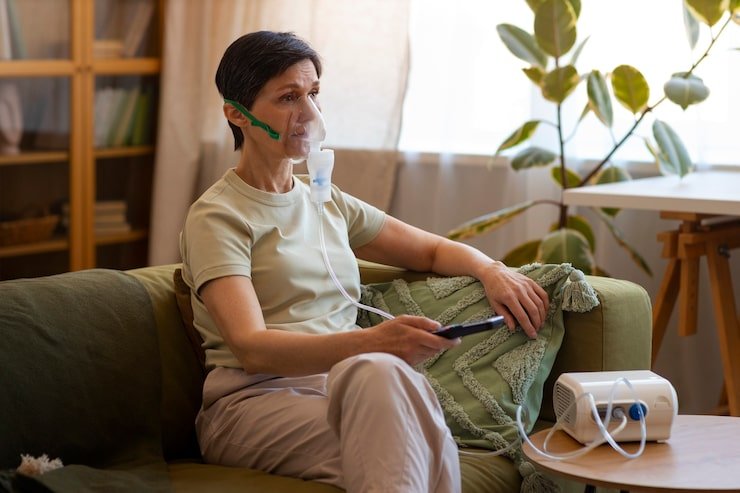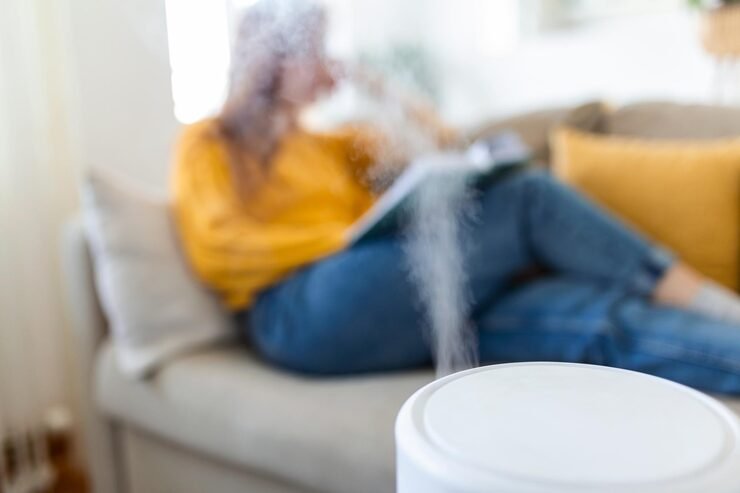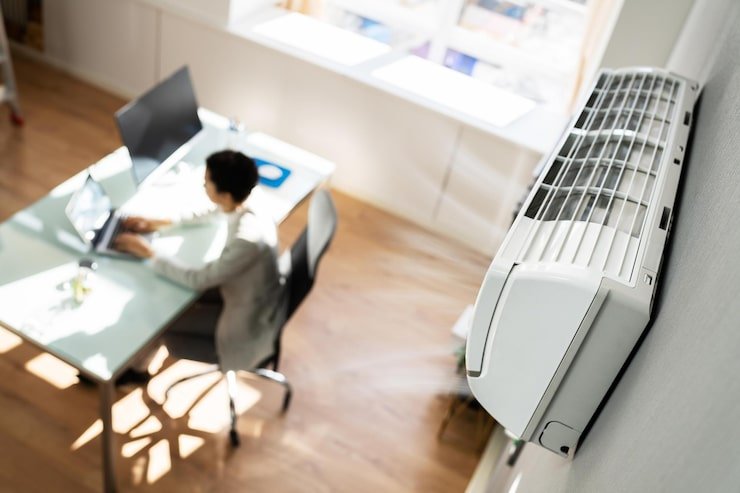Air Quality Testing Before Buying a Home: What You Need to Know
- admin323029
- Blog

Buying a home is one of the biggest investments you’ll ever make. From the roof to the foundation, every detail matters—but have you considered the air you’ll breathe inside that home every day? While most buyers focus on inspections for structure, plumbing, and electricity, air quality testing is just as important and often overlooked. The indoor environment can reveal hidden health hazards that don’t show up on a standard home inspection report.
This guide explains what air quality testing is, why it’s essential before buying a property, and how it can save you from costly and dangerous surprises. Whether you’re purchasing in Massachusetts or New Hampshire, knowing what’s in the air could protect both your health and your investment.
Why Indoor Air Quality Matters When Buying a Home
You may assume that clean-looking homes also have clean air—but appearances can be deceiving. Indoor air can contain mold spores, volatile organic compounds (VOCs), allergens, radon gas, or carbon monoxide. These contaminants aren’t visible to the naked eye, and many don’t have a noticeable odor.
According to the EPA, indoor air can be two to five times more polluted than outdoor air. When you’re buying a house in colder climates like New Hampshire or Massachusetts, tightly sealed homes may trap pollutants even more. Air quality testing before closing can help you avoid unexpected health issues or expensive remediation work after you move in.
H2: What Is Air Quality Testing and Why Do You Need It?
Air quality testing is a specialized inspection that measures pollutants in a home’s air. Certified inspectors use tools and lab testing to detect substances like:
-
Mold and mildew spores
-
VOCs from paints, furniture, and construction materials
-
Radon gas from the ground beneath the home
-
Carbon monoxide from appliances or fireplaces
-
Allergens like dust mites or pet dander
While a regular home inspection may note musty smells or signs of moisture, it won’t include laboratory-level detection. Adding air quality testing to your pre-purchase checklist ensures that you have a clear picture of what you’re breathing and whether the home environment is safe.
What Can Poor Air Quality Reveal About a Home?
Often, air quality testing uncovers deeper problems with a property. For example:
-
High mold levels may point to hidden water leaks or poor ventilation
-
VOCs could be signs of recent renovations using toxic materials
-
Elevated radon levels indicate a need for a mitigation system
-
Allergens might suggest HVAC issues or poor maintenance
In cities like Boston, Concord, or Nashua, older homes can come with aged materials, cracked foundations, or outdated systems that impact indoor air. Identifying these problems before the sale gives you leverage to negotiate repairs—or walk away from a bad investment.
When Should You Request Air Quality Testing?
Ideally, you should schedule air quality testing during your due diligence period, before finalizing the purchase. If your initial home inspection shows signs of dampness, odors, or ventilation issues, it’s even more critical.
Even new construction homes aren’t immune. In Massachusetts suburbs or fast-growing New Hampshire towns, builders may use materials that off-gas VOCs or fail to properly ventilate crawl spaces or basements. Don’t assume new means clean—testing is the only way to know for sure.
How Does Air Quality Testing Work?
A professional technician will visit the home and conduct various tests:
-
Air Sampling: Samples are taken from multiple rooms and sent to a lab for analysis.
-
Surface Testing: Swabs may be taken from suspicious areas for mold or bacteria.
-
Real-Time Monitoring: Tools measure carbon monoxide, carbon dioxide, and particulate levels on-site.
-
Radon Testing: A short-term radon test monitors gas levels over a few days.
After the results are analyzed, you’ll receive a detailed report outlining what was found, what’s within safe limits, and what requires action. This documentation can help you negotiate with the seller or request repairs before closing.
Why Local Conditions in Massachusetts and New Hampshire Matter
Local climate and construction styles affect air quality. For example:
-
In Massachusetts, humid summers and damp basements are ideal for mold growth.
-
In New Hampshire, radon levels are naturally higher due to local geology.
-
Older homes in both states may contain outdated insulation or building materials that release harmful particulates.
A local air quality testing expert understands these regional challenges and can tailor the inspection to your location’s specific risks.
The Benefits of Air Quality Testing Before You Buy
-
Health Protection: Avoid moving into a home that will make you or your family sick.
-
Negotiation Power: Use findings to ask for price reductions or required repairs.
-
Peace of Mind: Feel confident that your new home is safe and comfortable.
-
Long-Term Savings: Catch problems early before they lead to expensive mitigation work.
-
Better Planning: Know if you need air purifiers, ventilation upgrades, or mold remediation.
Why Trust Professionals for Air Quality Testing?
While DIY kits are available, they lack the accuracy and scope of professional air quality testing. Certified inspectors use calibrated tools and send samples to accredited labs for precise, trustworthy results. They also interpret the findings in context, helping you understand which issues matter most and how to fix them.
At Elite Home & Mold Inspections, we’ve helped hundreds of buyers across Massachusetts and New Hampshire make informed real estate decisions with expert air quality evaluations.
Final Thoughts: Make Air Quality Testing Part of Your Home-Buying Checklist
A home may pass all the visible inspections—but what about the air? Poor indoor air quality can take years off your health and thousands out of your pocket. The good news is, air quality testing is affordable, fast, and can save you from making a costly mistake.
If you’re buying a home in Massachusetts or New Hampshire, take this smart step before you sign. It’s one of the most important inspections you’ll ever do.
Schedule your air quality test today and ensure your next home is truly safe from the inside out.
FAQs About Air Quality Testing Before Buying a Home
1. What is air quality testing and why is it important before buying a home?
Air quality testing measures pollutants like mold, VOCs, and radon in a home. It’s crucial before buying to protect your health and avoid hidden issues.
2. How much does air quality testing cost in Massachusetts and New Hampshire?
Costs typically range from $250 to $600, depending on the home’s size and what is being tested. It’s a small investment compared to potential future repairs.
3. Is air quality testing included in a standard home inspection?
No. While home inspectors may note signs of poor air, full air quality testing requires specialized tools and lab analysis.
4. What happens if poor air quality is found?
You can use the results to negotiate repairs, request remediation, or back out of the purchase if serious issues like mold or radon are present.
5. Should I test new homes for air quality too?
Yes. New homes often contain VOCs from fresh materials, and construction defects can cause moisture issues. Air quality testing is smart for all homes.
Are you worried about the cleanliness of your space?
Let us help you! Cleaning services are our specialty, and we offer a complete range of cleaning and maintenance services. Get a free estimate!




